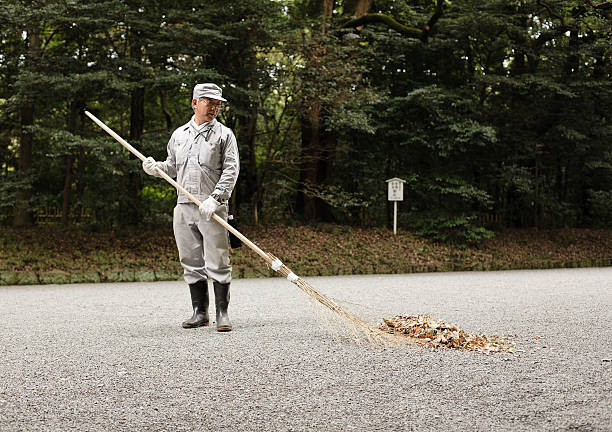How to Become a Zookeeper in Australia: Visa Types, Requirements, and Job Roles
Australia is renowned for its diverse and unique wildlife, from kangaroos and koalas to exotic birds and reptiles. For those with a passion for animal care and conservation, becoming a zookeeper in Australia offers a fulfilling career path with opportunities to work closely with these incredible creatures. Australian zoos and wildlife parks prioritize conservation, education, and animal welfare, making zookeeping a rewarding profession.
This guide provides aspiring zookeepers with the necessary information on visa types, educational requirements, and job roles to help them pursue a career in Australia’s wildlife care industry.
Who is a Zookeeper and What Do They Do?
A zookeeper is a trained professional responsible for the care, feeding, and welfare of animals in captivity, such as in zoos, wildlife parks, and aquariums. Zookeepers play an essential role in conservation, helping protect endangered species, providing medical care, and educating the public about wildlife.
- Key Responsibilities: Zookeepers are responsible for daily feeding routines, health checks, habitat maintenance, and behavioral observation.
- Skills Required: Physical fitness, strong observational skills, and a deep commitment to animal welfare are essential for a successful career in zookeeping.
Types of Zookeeper Roles
- General Zookeeper: Manages the daily care of multiple animal species, often rotating between different sections within a zoo.
- Veterinary Zookeeper: Assists veterinarians in administering medication and treatments to animals, focusing on health care and recovery.
- Conservation Zookeeper: Specializes in working with endangered species, supporting breeding programs, and conservation projects.
- Education Zookeeper: Focuses on educating the public, leading guided tours, and presenting educational programs about wildlife.
- Aquarium Zookeeper: Works in marine environments, caring for fish, coral, marine mammals, and other aquatic species.
These roles require various skills and sometimes specific certifications, depending on the type of animals being cared for.
Why Become a Zookeeper in Australia?
Australia is a global leader in wildlife conservation, making it an ideal place for those passionate about animal care. The country’s rich biodiversity, coupled with its commitment to protecting and studying wildlife, creates high demand for skilled zookeepers.
- Unique Wildlife and Conservation Efforts: Australian zoos and wildlife parks contribute to global conservation initiatives, providing a meaningful career path.
- Job Opportunities in High-Demand Regions: Wildlife centers, zoos, and aquariums in tourist areas create consistent demand for zookeepers.
- Benefits of Zookeeping in Australia: Competitive salaries, job stability, and benefits such as health insurance and training make zookeeping a viable career option.
Visa Types for Zookeepers Immigrating to Australia
Several visa options are available for those interested in working as a zookeeper in Australia. Here are the primary visa types:
- Temporary Skill Shortage (TSS) Visa (Subclass 482): For zookeepers who have a job offer from an Australian employer. The TSS visa allows short-term work for up to four years, depending on the employer’s requirements.
- Skilled Independent Visa (Subclass 189): A points-based visa for skilled workers without needing employer sponsorship. Applicants with experience in animal care or related fields can qualify if they meet the points requirement.
- Employer Nomination Scheme (ENS) Visa (Subclass 186): For zookeepers with an employer sponsor offering permanent work. The ENS visa provides a pathway to permanent residency.
- Working Holiday Visa (Subclass 417): Allows young people (18-30 years) to work in Australia for up to 12 months, ideal for gaining experience or seasonal work in zoos or wildlife parks.
- Temporary Graduate Visa (Subclass 485): For recent graduates from Australian institutions with relevant degrees who want to gain practical experience in their field.
Each visa has specific requirements, so it’s essential to choose the one that best matches your background and career goals.
General Requirements for Becoming a Zookeeper in Australia
To work as a zookeeper in Australia, you’ll need to meet certain educational, experiential, and health requirements:
- Educational Requirements: Zookeepers typically need a diploma or degree in animal science, zoology, or wildlife management. Australian institutions offer specialized courses in zookeeping and animal care that prepare students for this career.
- Work Experience: Experience in animal care is highly valued, often gained through internships or volunteer roles at wildlife centers or animal shelters.
- Skills and Certifications: Essential skills include animal handling, knowledge of animal behavior, and safety certifications. First aid certification and other safety training are often required.
- Physical and Health Requirements: Zookeeping involves physical tasks and outdoor work, so a certain level of physical fitness is necessary. Some zoos may require medical checks to ensure candidates can handle the job’s physical demands.
Meeting these requirements helps ensure you’re prepared for the responsibilities of a zookeeper role in Australia.
Application Process for a Zookeeper Visa
The visa application process for zookeepers typically includes the following steps:
- Skill Assessment: Obtain a skill assessment relevant to animal care. This step is essential for visas like the Skilled Independent Visa (Subclass 189).
- Creating an Expression of Interest (EOI): For the Skilled Independent Visa, submit an EOI through SkillSelect. This step helps determine your eligibility based on points.
- Securing an Employer Sponsorship (if applicable): For employer-sponsored visas, a job offer is required. Employers must sponsor you for visas like the TSS and ENS.
- Completing the Visa Application: Submit your visa application with all necessary documentation, including proof of qualifications, work experience, and a medical exam.
- Preparing for the Move: Once your visa is approved, plan your relocation and familiarize yourself with the Australian wildlife care environment and job expectations.
Each visa type may have unique requirements, so follow the specific steps based on your chosen visa.
Licensing and Certification for Zookeepers in Australia
While licensing requirements for zookeepers vary by state, here are the general certifications needed:
- Animal Handling and First Aid Certification: Handling animals safely and managing emergencies are crucial skills, often requiring certifications in animal handling and first aid.
- State-Specific Licensing Requirements: Some states have additional licensing requirements, especially for those working with exotic or dangerous animals.
- Ongoing Professional Development: Continuous training is recommended for those working with specialized species, such as venomous reptiles or endangered animals.
These certifications demonstrate your competency and preparedness for working with wildlife in a safe and professional manner.
Job Roles and Work Environments for Zookeepers in Australia
Australia offers various work environments for zookeepers, each with unique responsibilities and settings:
- Zoo-Based Zookeeper: Works in traditional zoos, caring for different species and participating in animal enrichment programs.
- Wildlife Park Ranger: Monitors and protects wildlife in national parks, focusing on conservation and public education.
- Aquarium Keeper: Specializes in marine animals, caring for fish, coral, marine mammals, and other aquatic species in aquariums or marine parks.
- Animal Rehabilitation Specialist: Works in rehabilitation centers to help injured or rescued animals recover and prepare for release into the wild.
- Research and Conservation Officer: Conducts field research, participates in conservation initiatives, and studies wildlife behavior.
Each role offers unique experiences and contributes to Australia’s conservation goals.
Salary Expectations and Job Outlook for Zookeepers in Australia
Zookeeper salaries in Australia vary depending on experience, location, and specialization:
- Average Salary: The average salary for zookeepers ranges from AUD 45,000 to AUD 65,000 annually, with higher pay in specialized roles or senior positions.
- Job Growth: Australia’s tourism and conservation sectors contribute to consistent demand for zookeepers, particularly in wildlife parks and aquariums in popular tourist areas.
- Benefits: Full-time zookeepers often receive benefits like health insurance, professional training, and paid leave.
With steady demand and competitive salaries, zookeeping in Australia is a stable career choice.
Tips for a Successful Zookeeping Career in Australia
For those new to zookeeping or considering a career shift, here are some practical tips:
- Networking and Job Search Tips: Connect with professionals through wildlife networks, zoo job boards, and conservation groups.
- Understanding Australian Wildlife Regulations: Australia has strict wildlife protection laws, so familiarize yourself with the regulations and standards for animal care.
- Adapting to the Australian Wildlife Environment: Zookeeping in Australia may involve handling native species like snakes or koalas, so gain training specific to these animals.
Following these tips will help you adjust to the unique demands of zookeeping in Australia and advance your career.
Frequently Asked Questions
Q: Do I need experience to become a zookeeper in Australia?
A: Yes, most zoos require experience in animal care, often gained through internships or volunteering at animal shelters or wildlife centers.
Q: What age is required for a Working Holiday Visa?
A: The Working Holiday Visa (Subclass 417) is available to individuals aged 18 to 30, making it ideal for young people seeking temporary zookeeping roles.
Q: Are there job opportunities for zookeepers in rural areas?
A: Yes, wildlife parks, conservation areas, and animal rehabilitation centers in rural areas often need skilled zookeepers.


